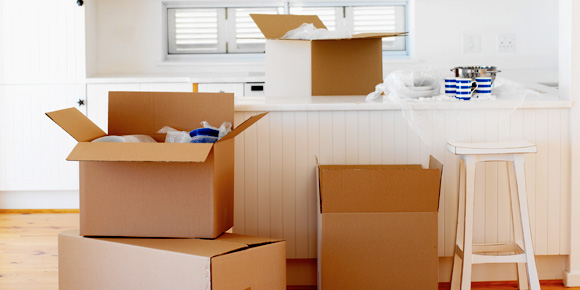By Geoff Kirbyson
If you think it was a lot of work to buy a house, you ain’t seen nothing yet.
Once you’ve finished the legal paperwork, the real heavy-duty and time-consuming work begins.
In fact, there are so many things to do that Chris Dudeck, president of WinnipegREALTORS®, recommends making a flow chart for the days and weeks before you move out and into your new place.
“List, list, list. Make daily schedules and get yourself organized. If you’ve got a partner, divide and conquer,” he said.
One of the first tasks is to book a moving company. Realtor Catherine Schellenberg recommends getting quotes from two or three moving companies so you can comparison shop.
“As much as you might think moving is a pretty simple thing, it’s not. If you have a 1,000-gallon fish tank with dozens of fish in it, some movers have experience moving that kind of thing. Some don’t,” she said.
Still, it’s probably a good idea to move most of your breakables and valuables by yourself as well as your kids’ favourite things, too.
If you’re going to pack it all up yourself, though, Schellenberg warns that one of the most common complaints from people is that they didn’t leave enough time to do it properly.
“For every room in the house, plan to spend one day packing. So, if you’ve got 10 rooms in your house, it’ll take you 10 days to pack,” she said.
If you’d like to pass the packing to somebody else, moving companies can pack up some or all of your house, too.
If you’ve got a family, don’t worry, your kids can pull their own weight. If they’re younger, ask them to start collecting, organizing and packing their toys and books. If you’ve got teenagers, they can be responsible for packing up their own rooms.
Of course, you’ll need boxes for all of your possessions. It’s common for people to pick up boxes from behind grocery and big-box stores but you’ll get a dog’s breakfast of supplies. Buying them from a packing company, however, will enable you to get boxes of the same size, which are easier to stack.
“You’ll also need markers to write the contents of each box and what room it should go into,” Dudeck said.
You also might want to mark some boxes, “load last, open first,” for perishables or personal items.
It’s important to get your home insurance in place as soon as possible. Schellenberg recommends extending it at your old house for another 30 days after you move out because it could take a month for the title to transfer over to the new buyers. This way, you’ll be sure to be covered in case something unexpected happens.
You’re going to have a new address, so you’ll need to make a list of all the people and organizations who will need to know, including Manitoba Health, your bank, Manitoba Public Insurance for your driver’s licence and any magazine or newspaper subscriptions. You can also pay a nominal fee to Canada Post to have them forward your mail to your new address for the next year for anybody that slipped through the cracks.
Don’t forget to cancel the cable and any alarm service you might have. Remember that the new owners won’t have to assume any previous employment contracts so if you’ve got a landscaper or a teenager who shovels your walk, let them know you’re moving.
Speaking of landscaping, if you’ve had any amount of work done, leave behind the company name in case the new people would like to extend the interlocking stone you had put in the backyard.
Before you turn over the keys, the new owners of your old home would be eternally grateful if you set aside the manuals, warranties and invoices that they might find useful down the road for appliances, windows, a deck or roof shingles.
You should also read all of the meters, such as gas, hydro and water, and call them in before you leave for the last time. Do the same the first day in your new house as well.
“If there’s anything pertinent to know about the block or neighbourhood, it would be nice if you told them, too,” she said.
geoffkirbyson@mymts.net



